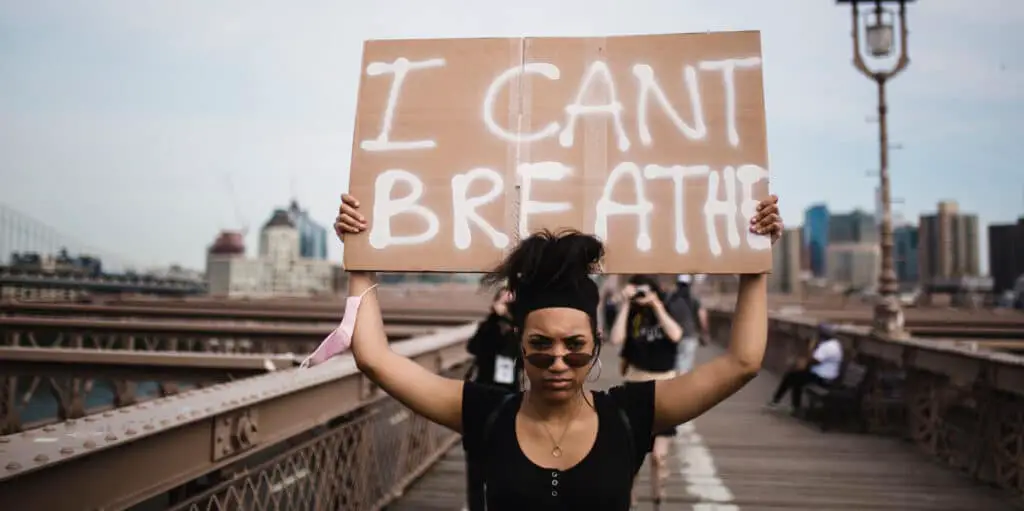Three powerful ways mindfulness has improved my communication
This Guest post is by Ian Chew, the founder of Deeper Conversations. Despite his social anxiety, he’s had conversations with over 10,000 people, and he’s been featured by top media outlets like CBC, Inc. Magazine, and TEDx.
Binging on social skills books.
Walking into a room and pretending like I’m Leonardo Dicaprio (well, whatever charismatic person that comes to your mind. Except that I’m most probably shorter than them…)
Oh, and guzzling down beer. Didn’t they say alcohol is the best social lubricant?
None of these really helped me become less anxious and stressed around people so that I could communicate with more ease.
But mindfulness did.
Before I go into how mindfulness has helped my communication, first things first…

What exactly is mindfulness?
Mindfulness is simple… but not easy.
It’s all about awareness without judgment.
Here’s how our founder, Olivier Devroede, defines mindfulness:
“Mindfulness is a state of mind. It is a way in which you can pay attention to the world. It is defined as being aware of what you are doing while you are doing it. Furthermore, your attention should be free of judgment. Whatever happens, should be noticed in a matter-of-fact way.”
My communication before and after mindfulness
Before embarking on the journey of mindfulness, I was so focused on what to say or do in conversations.
I was all in my head, calculating every social interaction, which led to fear, frustration… a deep sense of franticness that they would find what I say boring, and that they won’t like me.
I was often distracted in conversations, which led to prematurely interrupting or asking questions that didn’t connect, simply because I wasn’t fully listening.
After embarking on the journey of mindfulness, I haven’t found “enlightenment” just yet, nor have I become anxiety-free… but I’ve found communication a lot less complicated — a lot less scary.
It starts with this one thing:
Getting out of my head so that I could get into the moment.
Sounds cool, but what does that really mean? Let me explain…

Mindfulness helps me escape the Hurricane of A Million Anxious Assumptions
When I’m not mindful, I’m constantly sucked into the raging spiral of anxious thoughts. I call this the Hurricane Of A Million Anxious Assumptions.
These hot, negative thoughts attract each other, compound on top of one another, and spin around faster and faster — just like how a real hurricane would get stronger in nature.
When I’m not mindful, I get caught up in the hurricane, and all I can pay attention to is my anxiety. Good luck trying to talk to me!
When I’m mindful, though, I’m able to steer away from the hurricane; in other words, judge myself less and immerse myself more in the moment.
One helpful mindfulness technique is saying “yes” to whatever I’m feeling, thinking, and experiencing, even when it feels difficult. It’s a powerful way to practice self-acceptance and compassion. I learned this from Tara Brach, and here’s what she wrote:
“Yes is an inner practice of acceptance in which we willingly allow our thoughts and feelings to naturally arise and pass away… When we say a friendly Yes to our experience, we awaken the healing power of love. It is this response of the heart that moves us towards healing.
Tara Brach
In a very physical and immediate way, saying Yes helps to dissolve the feeling that “something is wrong,” and relax our deepest doubts and fears.”
Whenever I feel anxious in social situations, I’d say, “yes, I’m feeling anxious, and that’s OK”, then bring my attention back to the conversation. With a more focused attention, I naturally interrupt less and listen more.
And when it comes to listening, here’s how mindfulness has specifically helped:

Mindfulness helps me empathize with others
Mindfulness isn’t just about being compassionate towards myself. It’s also about extending the same kindness to others, or “expanding the circle of affection” as Einstein said.
And, research backs up the connection between mindfulness and empathy: a meta-analysis of 13 studies showed that there’s a strong connection between both.
But how does it play out in real life? Having practiced mindfulness for years, I find it much easier to connect with and relate to other people’s feelings, which then helps me figure out what’s appropriate to say or ask. Here’s a recent example:
A family member came to me for advice on a challenge they faced. If I wasn’t mindful, I could have jumped into advice-giving mode, instead of really understanding why they felt so frustrated and unmotivated.
What I needed to say wasn’t “here’s what you should do…” — it was “what you’re feeling makes a lot of sense.”
Different messages, different words.
Here’s one way to link mindfulness and empathy, and it comes in the form of two questions:
- “What is their intention?” Ask this to better interpret what they’re saying. If you notice judgment creeping in — in other words, you’re assuming bad intent — acknowledge that and ask this question instead: “What is their best intention?”
- “What is my intention?” Ask this to understand what you really want to say. If you sense a misalignment between your intention and your words, reconsider what you’re about to say next. You can also ask: “What is my best intention?”(h/t: Tara Brach and Jack Kornfield)
The power of these questions is that they help you pause, even for a brief moment, rather than jumping to conclusions.
Mindfulness helps me connect the head and the heart
You might be wondering at this point:
“Ian, I get that mindfulness helps you become less anxious and more empathetic. But what about learning communication skills?
Do communication skills matter? Yes. Understanding the difference between good vs. great questions is helpful. So is learning how to tell an interesting story.
But all of that needs to be in service of your heart. When the heart is open, the mind will follow and the words will come.
Sounds woo-woo, but think about it: how do you communicate with someone you fully love and trust? Versus someone that you feel anxious about? Chances are, you talk very differently — even when you’re technically still the same person!
When I was overfocused on what communication skills to learn and master, I was missing the larger point of what makes communication magical: the sense of connection.
And it’s only when you pay attention that you spark the connection to light up a conversation… and even an entire relationship.
Featured image by Anastasiya Gepp
Ian Chew is the founder of Deeper Conversations. Despite his social anxiety, he’s had conversations with over 10,000 people, and he’s been featured by top media outlets like CBC, Inc. Magazine, and TEDx. He’s also taken multiple therapy and mindfulness courses, such as The Power Of Awareness by Jack Kornfield and Tara Brach.


